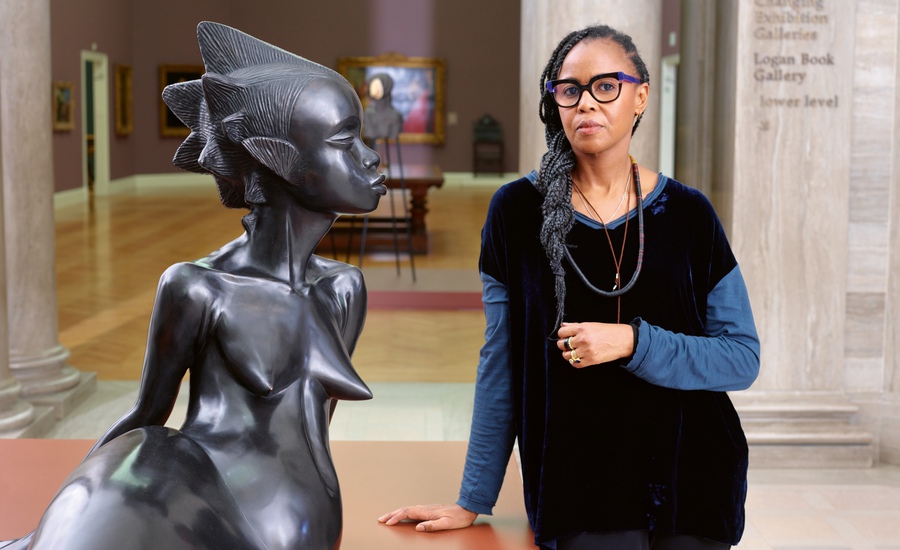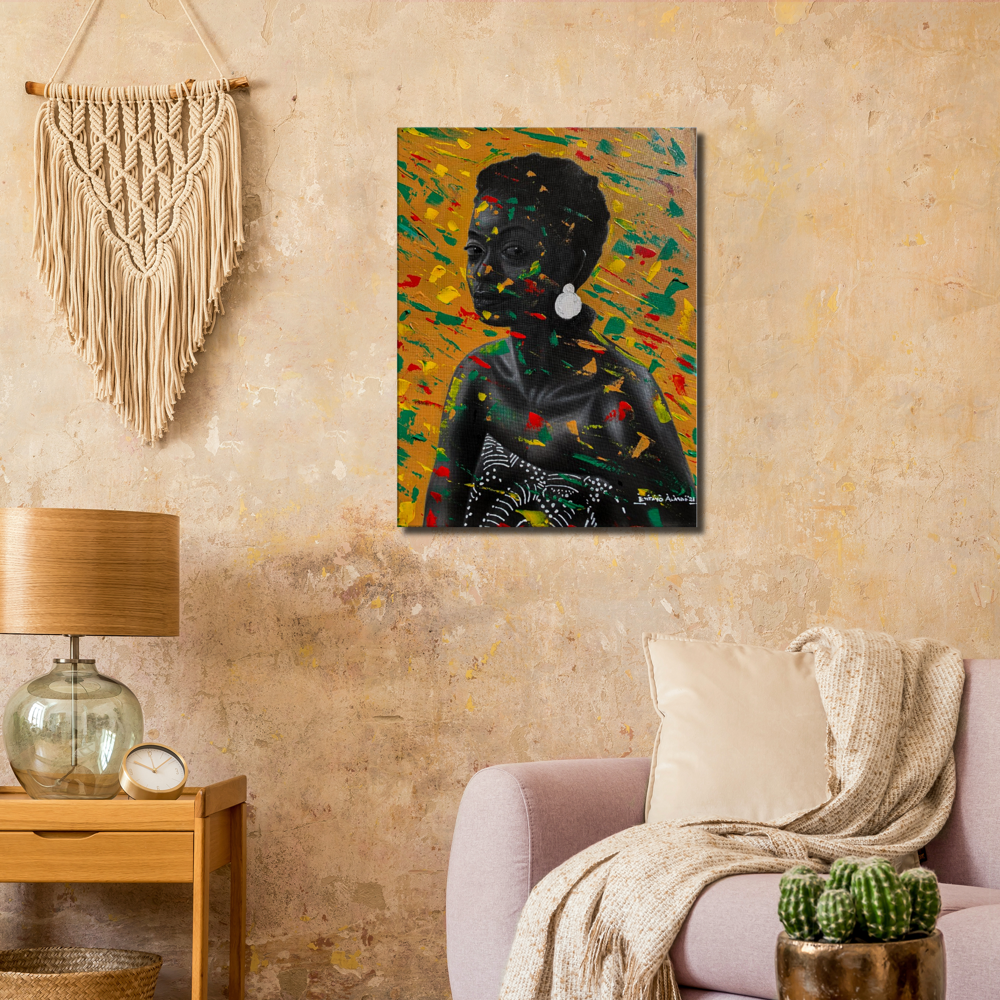“Females carry the marks, language and nuances of their culture more than the male. Anything that is desired or despised is always placed on the female body,” or so said Wangechi Mutu, the venerated Kenyan-born American artist. Wangeci is renowned for her work in performance, video, sculpture, painting, and more. She was born in Nairobi, Kenya in 1972 but has spent more than 20 years living and building her career in New York. Through collage painting, interactive installation, live performance, and video, Mutu’s work has utilised the female body as a subject to explore issues with self-image, gender constructions, cultural trauma, ecological damage, and conceptions of beauty and power.

In her 2005 arresting depiction, Adult Female Sexual Organs, which features packing tape, fur, and a collage on found medical illustration paper, Mutu’s collage examines the ambivalent aspect of cultural identity by fusing magazine photos with painted surfaces and other objects while making references to colonial history, fashion, and prevailing African politics.
Wangechi Mutu bases Adult Female Sexual Organs on a Victorian medical illustration, which serves as a metaphor for prejudiced anthropology and sexual suppression. The head is a caricatured mask; it is composed of packing tape, which alludes to bandages, migration, and inexpensive “quick fixes.” Mutu uses physical characteristics taken from lifestyle magazines to depict the inner and exterior goals of the self: the woman’s face is a racial distortion, and a stereotypical white model occupies her head. Incorporating traditional African craft aesthetics into her own type of storytelling, Mutu’s paintings portray the contemporary myth-making of imperilled cultural heritage.
Mutu first garnered notoriety for her collage paintings, which she created by blending ink and paint with bits of imagery gleaned from National Geographic, fashion magazines, and old pictures. Using these resources, Mutu creates feminine avatars that are both elegant and obscene, subverting the traditional representations, packaging, and consumption of Black and female bodies.
Wangechi Mutu manipulates vibrant ink and paints on the surfaces of these pieces to create a stunningly thick and textured ground by working extensively on nonabsorbent Mylar film. Mutu uses organic materials like paper pulp and Kenyan soil in her diverse sculptural practice, in addition to working in colossal bronze.
From 1978 to 1989, she attended the much-feted Loreto Convent in Msongari for her high school education. Later, she attended the United World College of the Atlantic in Wales (I.B., 1991). In the 1990s, Mutu relocated to New York (where she has lived and thrived for more than two decades) and concentrated on fine arts and anthropology at The New School for Social Research and Parsons School of Design. She graduated with a BFA in 1996 from Cooper Union for the Advancement of the Arts and Sciences, and in 2000 she received a master’s in sculpture from Yale School of Art.
The artist uses clay, wood, and other found materials to fashion regal and aggressive abstract female shapes for her Sentinel series (2016–present). These enormous sculptures, according to Mutu, preserve the earth itself and serve as indicators of our environmental problem by serving as reminders of our connection to the globe. The otherworldly humanoid figures in Mutu’s bronze sculptures, such as The NewOnes, will free Us (2019) and MamaRay (2020), challenge the established roles of women in art and provide alternate iconography, modes of representation, as well as possible futures.
One of the most outstanding aspects of Mutu’s extraordinary capacity is her ability to switch from painting to sculpture and back again allowing for the enactment of both personal and cultural transfigurations.
Of art, she says- “Art allows you to imbue the truth with a sort of magic… so it can infiltrate the psyches of more people, including those who don’t believe the same things as you.”



